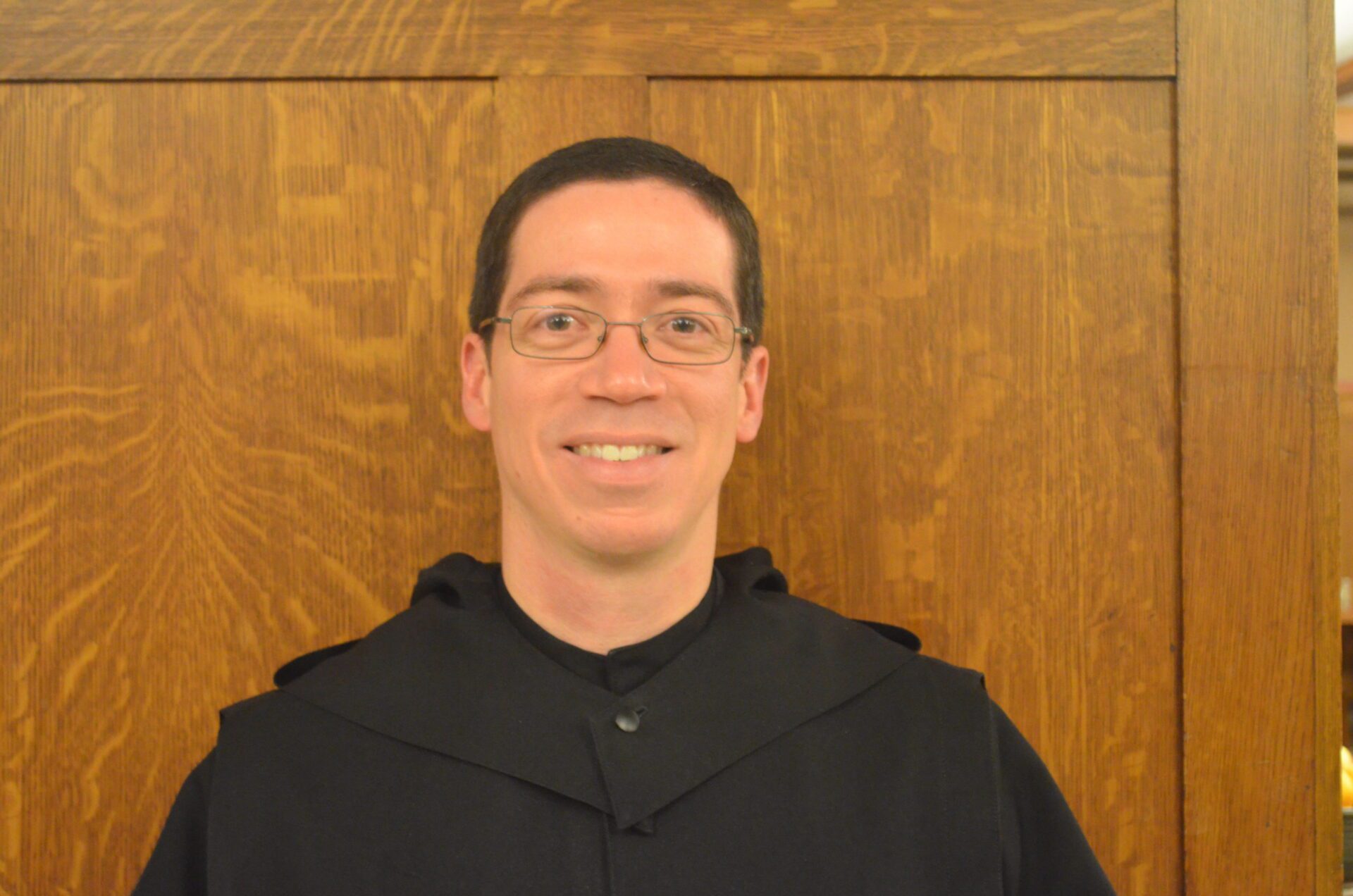Whether you have questions about discernment and vocations or want general information about Belmont Abbey, we invite you to reach out and ask!
Homilies

December 9, 2019
Second Sunday of Advent, December 8, 2019

Prepare the way of the Lord. Those words almost precisely encapsulate for us the purpose of this season of Advent. Today, as we are called to continue to prepare the way of the Lord, we are presented the testimony of St. John the Baptist, a reminder for us that a significant part of our preparation for the Lord must always consist of repentance.
Truly repentance is one of the basic principles of the Christian message. Christ began his own ministry using the same message, saying Repent, the kingdom of heaven is at hand. He said that he specifically came to call sinners to repentance. He also said that the only sign that he would give to legitimize his mission was the sign of Jonah; as we know, Jonah’s mission was also one of preaching repentance, and Christ draws a connection between himself and Jonah. Jonah preached to the people of Nineveh and they repented, but speaking of himself, He says there is one greater than Jonah present. When Christ’s disciples were sent out, the Scriptures tell us they took with them the same message of repentance. In St. Peter’s speech on Pentecost, when the crowds ask him what they must do, his answer is repent and be baptized. And St. Paul also carried the same message, as he wrote to the Romans, that the kindness, forbearance, and patience of God were to lead them to repentance. Thus we see that repentance is a key part of the Christian message.
Repentance represents a turning to the Lord and away from things and behaviors that make us forget God and neglect what is good. As Christians, repentance is a continuing process; as we mature, we become aware of new ways that we forget God or refuse God, and as we repent in new areas of our life, we gradually learn to turn to God more perfectly. The idea of repentance contains the fundamental truth that we will be better as human beings in all ways, our relationships, our work and study, our personal happiness, our decision-making, we will be better as human beings the more perfectly we turn to God. And yet, that truth notwithstanding, sometimes, as human beings, we are not ready to take the next step. St. Augustine famously struggled with unchastity, and at one point said, “Lord make me chaste, but not yet!” Perhaps helpfully then, repentance is often expressed as being itself a gift from God, coming to us through Christ. As St. Peter says, He whom God exalted at his right hand grants Israel repentance. And later, the Christian people glorify God for the conversion of the Gentiles saying, “God has granted life-giving repentance to the Gentiles too.” So, when we find ourselves in the same situation as St. Augustine, not being ready to repent, then our prayer can be for God to give us the gift of repentance, the desire to change our ways.
In today’s gospel, St. John the Baptist preaches repentance using a pair of images. The first is that of bearing fruit. Even now, he says, the ax lies at the root of the trees. Every tree that does not bear good fruit will be cut down. It is a part of repentance to produce fruit, or to produce more fruit. Fruitfulness is in God’s nature. Wherever God is present, good abounds and multiplies. God takes five loaves and feeds thousands of people. Seed placed in the ground produces fruit a hundredfold. Likewise should our lives be fruitful. Sin is often identified as a selfish turning inward, in a way that is barren and unfruitful. Thus repentance restores our ability to produce and multiply what is good. St. John the Baptist tells the Pharisees and Sadducees today, “Produce good fruit as evidence of your repentance”. He was challenging them to go beyond words, to bring the intention of repentance into action. When we recognize the need for repentance in our own life for something we have done or are doing, perhaps we can look to see what is the good fruit I can produce that is the opposite of the barrenness that is currently present? In this way, engaging in the opposite behavior, we will bear the good fruit of repentance.
The second image that St. John the Baptist uses today for repentance is that of a winnowing fan separating the wheat and the chaff. This process may not be familiar to many of us, since few have direct farm experience growing wheat. The chaff is the husk around the wheat seed, and the chaff is not eaten. Thus in harvesting the wheat, it was necessary to separate the chaff from the wheat seeds. The winnowing fan is a tool that is shaped like a sickle. It was used to throw the threshed grain up into the air for the breeze to carry away the lighter chaff while the heavier wheat seeds fell back to the ground. Part of repentance then, involves a continuous sifting and discerning through our lives, guided by the Holy Spirit in prayer, He who will lead us to all truth, separating the good from the not so good, and keeping only the good. We are twice warned in today’s gospel. That which is unfruitful, that which is not life-giving, is destined to be burnt in fire. Our continuing repentance purifies us from those parts of our lives that are not life-giving. Sooner or later, all such parts of our lives must be so purified.
I will end today with a promise of God, concerning the blessing of repentance, words which were written by the prophet Hosea. Return, Israel, to the LORD, your God; you have stumbled because of your iniquity. Take with you words, and return to the LORD; Say to him, “Forgive all iniquity, and take what is good. Let us offer the fruit of our lips.” To which God replies, “I will heal their apostasy, I will love them freely; for my anger is turned away from them. I will be like the dew for Israel: he will blossom like the lily; He will strike root like the Lebanon cedar, and his shoots will go forth. His splendor will be like the olive tree and his fragrance like the Lebanon cedar. Again they will live in his shade; they will raise grain, They will blossom like the vine, and his renown will be like the wine of Lebanon.” In this passage we come to understand that on the way of repentance we will end up with far more than when we began.
In this Eucharist, we pray for the grace to be renewed in our own efforts at repentance, so that we can prepare the way of the Lord. Amen.
Fr. Elias Correa-Torres, O.S.B.